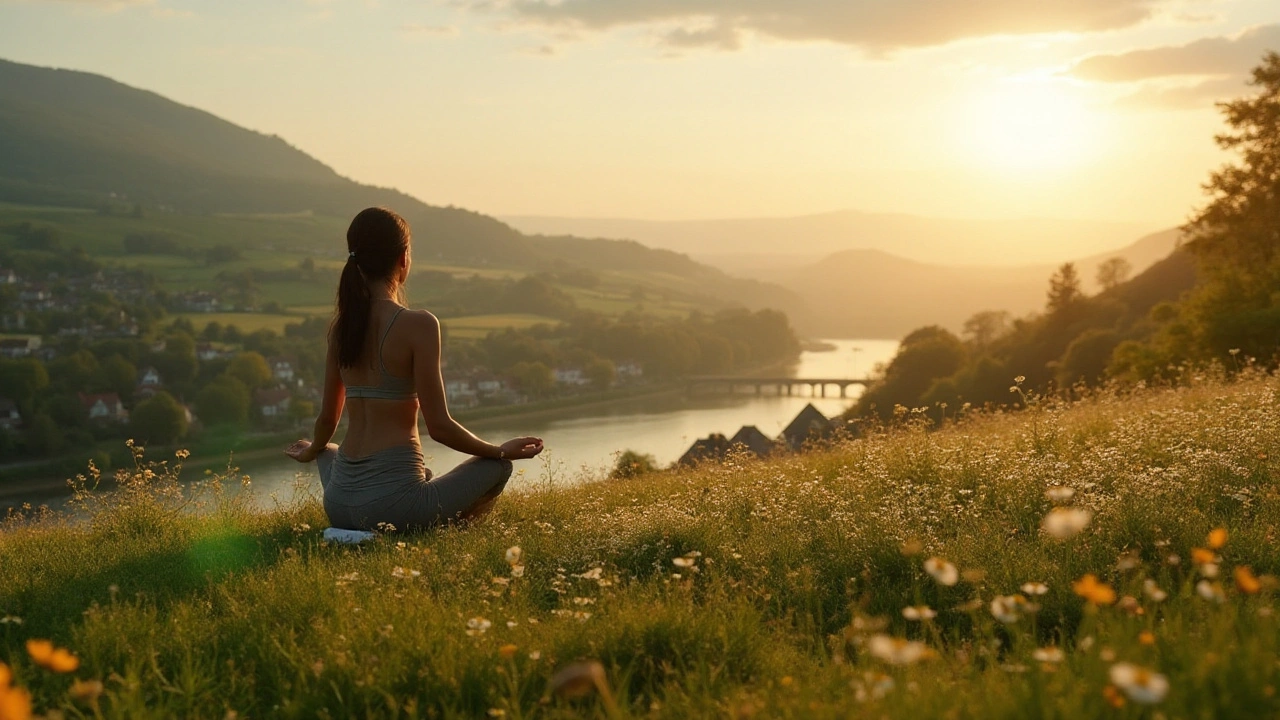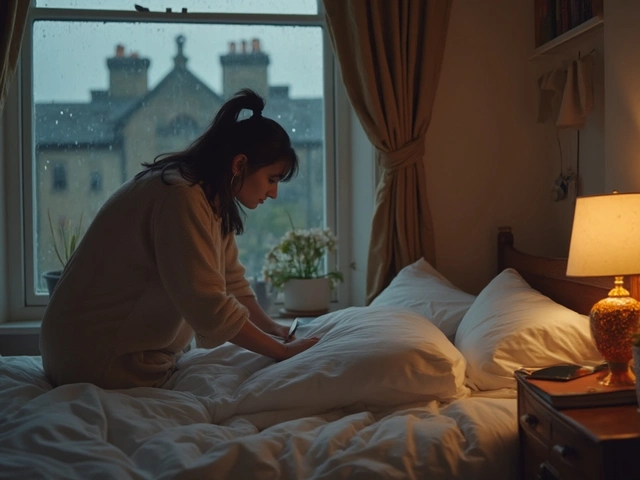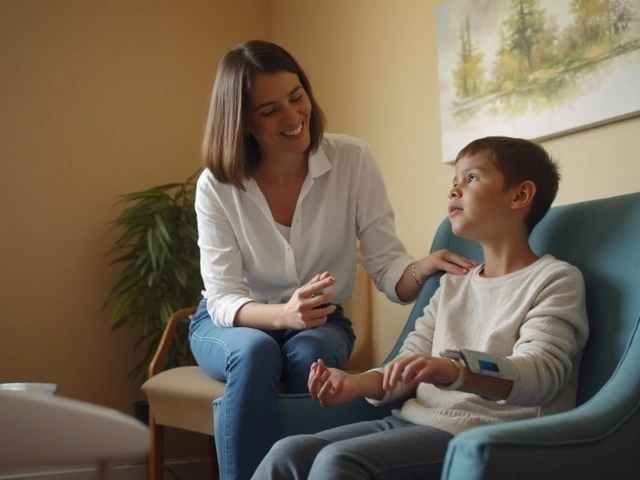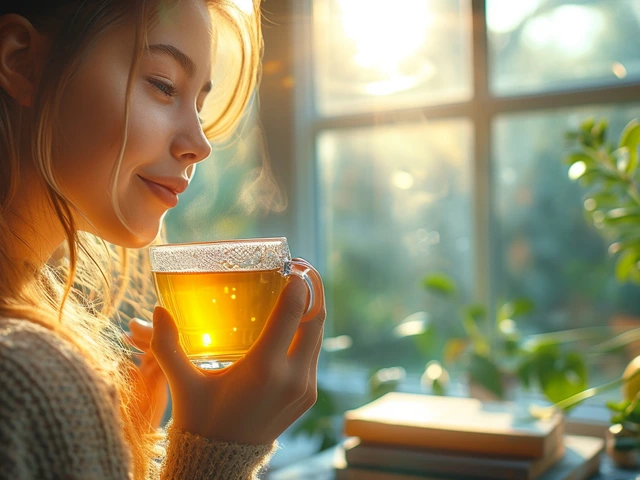In today's fast-paced world, we often ignore the simple, effective practices that can make life more enjoyable and stress-free. Relaxation techniques are one such component, easily overlooked yet incredibly powerful. These methods not only alleviate stress but also enhance your overall sense of well-being.
From ancient practices like yoga and meditation to modern methods like aromatherapy and progressive muscle relaxation, there's a myriad of options to explore. Scientific studies back up the effectiveness of these techniques, highlighting benefits such as improved mental clarity, reduced anxiety, and better sleep.
Incorporating these techniques into your daily life doesn’t have to be a chore. Simple adjustments, like mindful breathing during your commute or setting aside five minutes for guided meditation, can make a significant difference. By tailoring a routine that fits into your lifestyle, you can reap the benefits of these powerful stress-relievers without feeling overwhelmed.
- The Importance of Relaxation
- Popular Relaxation Techniques
- Scientific Insights
- Combining Relaxation with Daily Activities
- Creating Your Personalized Routine
The Importance of Relaxation
Relaxation is more than just an occasional treat; it is a crucial aspect of maintaining both mental and physical health. When we talk about relaxation, it's not simply about kicking back in front of the TV. True relaxation techniques go deeper and offer significant benefits that can have lasting impacts. According to the American Psychological Association, chronic stress is connected to a multitude of health issues ranging from headaches and muscle tension to more severe ailments like heart disease. Integrating effective relaxation techniques into your routine is a proactive way to fend off these issues.
One well-researched benefit is the impact on stress hormone levels, particularly cortisol. High levels of cortisol can lead to various health problems, including weight gain, weakened immune function, and insomnia. Practices such as deep breathing exercises and meditation have been shown to significantly reduce cortisol levels, helping your body to reset and repair itself more effectively.
Besides biochemical changes, relaxation techniques also have profound psychological benefits. Mindfulness practices such as meditation can enhance emotional regulation and resilience. Mindfulness allows individuals to respond rather than react to stressful situations, ultimately leading to better decision-making and a calmer state of mind. As Jon Kabat-Zinn, the creator of the Mindfulness-Based Stress Reduction program, poignantly said, "You can't stop the waves, but you can learn to surf." This quote encapsulates the essence of why relaxation is essential: it equips us to navigate life's challenges more effectively.
Regular relaxation practices also contribute to improved cognitive function. Studies have found that activities like yoga and tai chi not only lower stress but also boost cognitive abilities such as memory and concentration. The mental clarity one gains from consistent practice can prove invaluable in a world where multitasking has become the norm. As we give our minds the break they need, we become more resourceful and creative in our problem-solving abilities.
Impacts on Physical Health
Relaxation's benefits extend to physical health as well. Techniques like progressive muscle relaxation can help alleviate muscle tension and pain. Better sleep quality is another significant advantage. People who engage in regular relaxation exercises often report falling asleep easier and experiencing deeper, more rejuvenating sleep. This results in better performance in daily tasks and a more positive outlook on life.
To understand how profound this is, consider a study conducted by Harvard Medical School that found consistent usage of relaxation techniques can even reverse some of the harmful impacts of chronic stress on the body. In this study, participants who practiced relaxation exercises showed improvements in biomarkers indicative of stress.
Given the multitude of benefits, incorporating relaxation techniques into your daily routine is not just an option but a necessity for comprehensive wellness. From mental clarity and emotional regulation to better physical health and quality sleep, the importance of relaxation cannot be overstated. Perhaps it's time to view relaxation not as an occasional retreat but as a daily ritual that fortifies our mind, body, and spirit.
Popular Relaxation Techniques
Relaxation techniques come in various forms, and their effectiveness often depends on personal preference and lifestyle. Let's dive into some of the most popular methods that have stood the test of time and gained scientific backing. First, we have meditation. Originating from ancient traditions, meditation involves focusing your mind and eliminating the stream of thoughts that may be crowding it. This practice can lead to a profound sense of calm and balance, benefiting both emotional well-being and overall health.
"In the last few decades, meditation has found acceptance as a therapeutic practice. It's increasingly used for reducing stress, pain, and even managing symptoms of chronic conditions," says Dr. Herbert Benson, a pioneer in mind-body medicine at Harvard Medical School.
Next up is deep breathing exercises. This method is incredibly simple yet powerful. By focusing on your breath, you can activate the body's relaxation response, lowering cortisol levels in the process. It can be practiced almost anywhere, making it an excellent tool for immediate stress relief.
Then there's progressive muscle relaxation (PMR). This technique involves tensing and then slowly releasing different muscle groups in the body. By doing so, you become more aware of physical sensations and increase your control over stress responses. PMR has been shown to reduce symptoms of anxiety and improve sleep quality.
Aromatherapy
Aromatherapy uses essential oils extracted from plants to promote well-being. Scents like lavender, chamomile, and peppermint can invoke a sense of calm and reduce feelings of stress. You can use essential oils in diffusers, baths, or even apply them directly to the skin (with appropriate dilution). Studies have shown that certain scents may improve mood and reduce anxiety.
Yoga
No discussion on relaxation techniques would be complete without mentioning yoga. This ancient practice combines physical postures, breathing exercises, and meditation to promote a balanced mind and body. Various forms of yoga, such as Hatha, Vinyasa, and Kundalini, offer different benefits. According to the national survey conducted by the Centers for Disease Control and Prevention (CDC), about 14% of adults in the U.S. have practiced yoga at least once in the past year, highlighting its growing popularity.
Exploring these methods can provide you with a toolkit for managing stress and enhancing your wellness routine. Remember, the key is to find what works best for you and make it a regular part of your life.
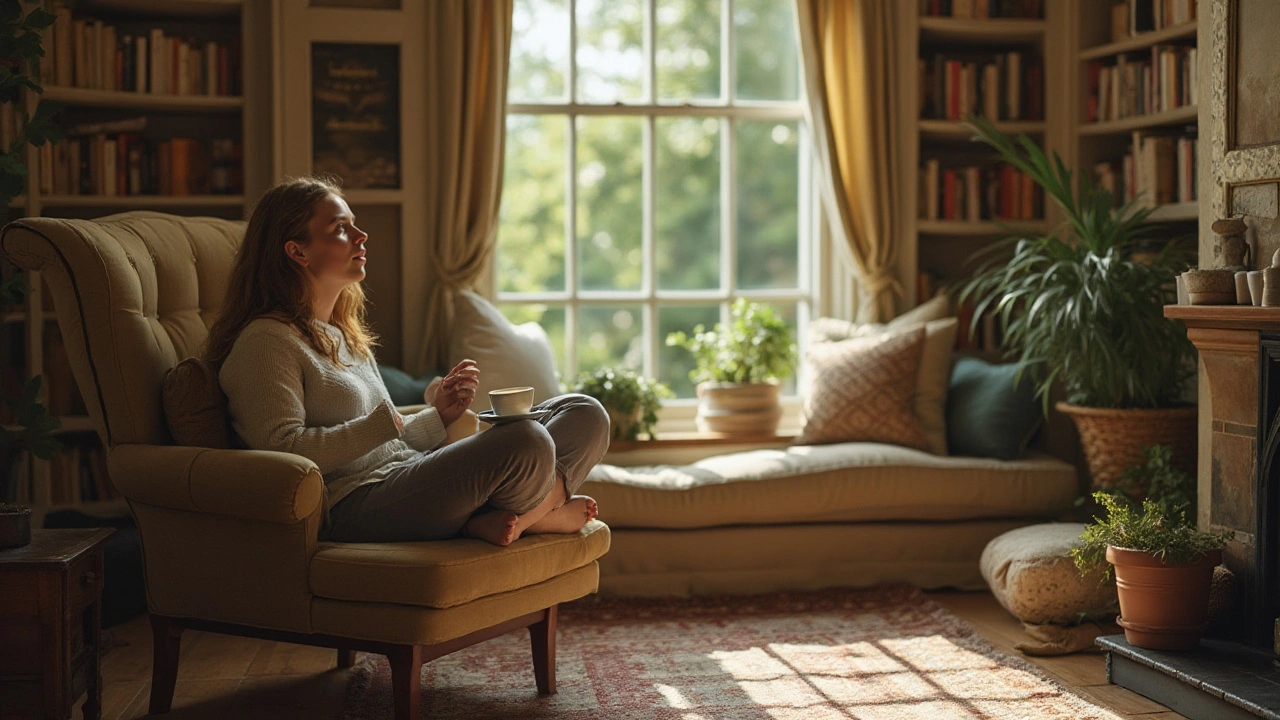
Scientific Insights
The realm of relaxation techniques isn’t just about feel-good practices; numerous scientific studies support their efficacy. One of the primary benefits of these methods is the reduction in cortisol levels, our body's main stress hormone. Chronically high cortisol levels can lead to various health issues, including heart disease, high blood pressure, and impaired cognitive function. Studies have shown that practices like yoga and mindfulness can significantly lower cortisol levels, leading to a calmer, more balanced state of mind.
Another scientifically-backed advantage of relaxation techniques is the improvement in mental health. Research conducted at Stanford University found that individuals who practiced mindfulness meditation exhibited reduced symptoms of anxiety and depression. This is partly due to the activation of the prefrontal cortex, a part of the brain associated with regulating emotions and decision-making. The practice helps in rewiring the brain, making it more resilient to stress and anxiety.
A fascinating aspect of these relaxation methods is their effect on the autonomic nervous system, which controls involuntary physiological functions. Activities like deep breathing and progressive muscle relaxation activate the parasympathetic nervous system, which is responsible for the 'rest and digest' response. This process slows the heart rate, decreases blood pressure, and promotes feelings of calm and well-being. It's a direct counter to the 'fight or flight' response triggered by stress, creating a natural equilibrium in the body.
"The benefits of regular relaxation practice are extensive and supported by neuroscience," says Dr. Herbert Benson from Harvard Medical School, known for his work on the relaxation response. "By incorporating these techniques, individuals can not only reduce stress but also improve their overall health and quality of life."
Let’s delve deeper into sleep quality, another area where relaxation techniques shine. The University of Massachusetts Medical School conducted research that demonstrated mindful meditation effectively combats insomnia. Participants practicing mindfulness saw a remarkable improvement in sleep quality and duration, attributing this to a reduction in the intrusive, racing thoughts often associated with sleeplessness. The ability of these techniques to calm the mind is crucial in achieving restorative sleep, which is essential for overall well-being.
Finally, let’s talk about pain management. Chronic pain sufferers often find relief through methods like guided imagery and biofeedback. Both techniques have shown to decrease pain perception and enhance quality of life. One study from the National Institutes of Health (NIH) revealed that biofeedback had a success rate of up to 80% in reducing chronic pain symptoms. These findings are a testament to the power of relaxation techniques in managing not only stress but also physical ailments.
Combining Relaxation with Daily Activities
With our lives getting busier, finding the time for dedicated relaxation sessions can seem like a luxury. However, you can integrate relaxation techniques seamlessly into your everyday activities. Little adjustments to your routine can lead to immense benefits, and the best part is, you don’t have to set aside a massive chunk of time. It’s all about weaving these techniques into your daily fabric.
Start with something as simple as mindful breathing. When you're commuting, instead of scrolling through social media, close your eyes (if it's safe) and take deep breaths. Hold for a few seconds and then exhale slowly. This practice, even for five minutes, can help reduce stress and center your thoughts. Over time, this can contribute to an improved sense of balance in your mental health. Another easy addition is progressive muscle relaxation. When you get home after a long day, spend a few minutes tensing and relaxing each muscle group in your body. Start from your toes and work your way up. This boosts body awareness and releases built-up tension. It’s a simple way to unwind and improve your overall wellness routine.
Cooking dinner? Use this time for some relaxation. Put on some soothing music or an interesting podcast. Focus on the smells, textures, and colors of your ingredients. This turns a mundane task into an enjoyable, sensory-rich experience. Similarly, while cleaning, try to stay present in the moment. Feel the satisfaction of making your space tidy and organized, which can be extraordinarily calming.
Exercise is often associated with strenuous gym sessions, but it doesn’t have to be. Daily activities such as walking the dog, gardening, or even stretching can offer ample opportunities for relaxation. Incorporate elements like deep breathing or mindfulness into these activities to double their impact on your mental health. As you water your plants or walk in a park, take the time to notice your surroundings. The rustling of leaves, chirping birds, or the pattern of clouds – immersing yourself in these small details can be incredibly therapeutic.
Work can be stressful, but there are ways to integrate relaxation there too. Set a timer to remind yourself to take brief breaks. During these breaks, do some light stretching, gaze out the window, or even meditate for a few minutes. This not only reduces stress but also increases productivity. As mindfulness advocate Jon Kabat-Zinn puts it:
“You can’t stop the waves, but you can learn to surf.”Taking these small breaks during your workday can help you ride the waves of stress more effectively.
Don’t forget about sleep. Creating a calming bedtime routine can significantly enhance your relaxation. Dimming the lights, avoiding screens, and perhaps practicing some light stretching or guided meditation can prepare your mind and body for restful sleep. Good-quality sleep, in turn, positively affects your stress levels, making it easier to maintain your daily wellness routine.
By creatively incorporating these relaxation techniques into various aspects of your day, you’ll find it easier to manage stress and maintain a healthier, happier lifestyle. The key is consistency and finding what feels natural for you. In the end, the best relaxation technique is the one that fits seamlessly into your life, so you don’t feel like it’s another task on your to-do list.
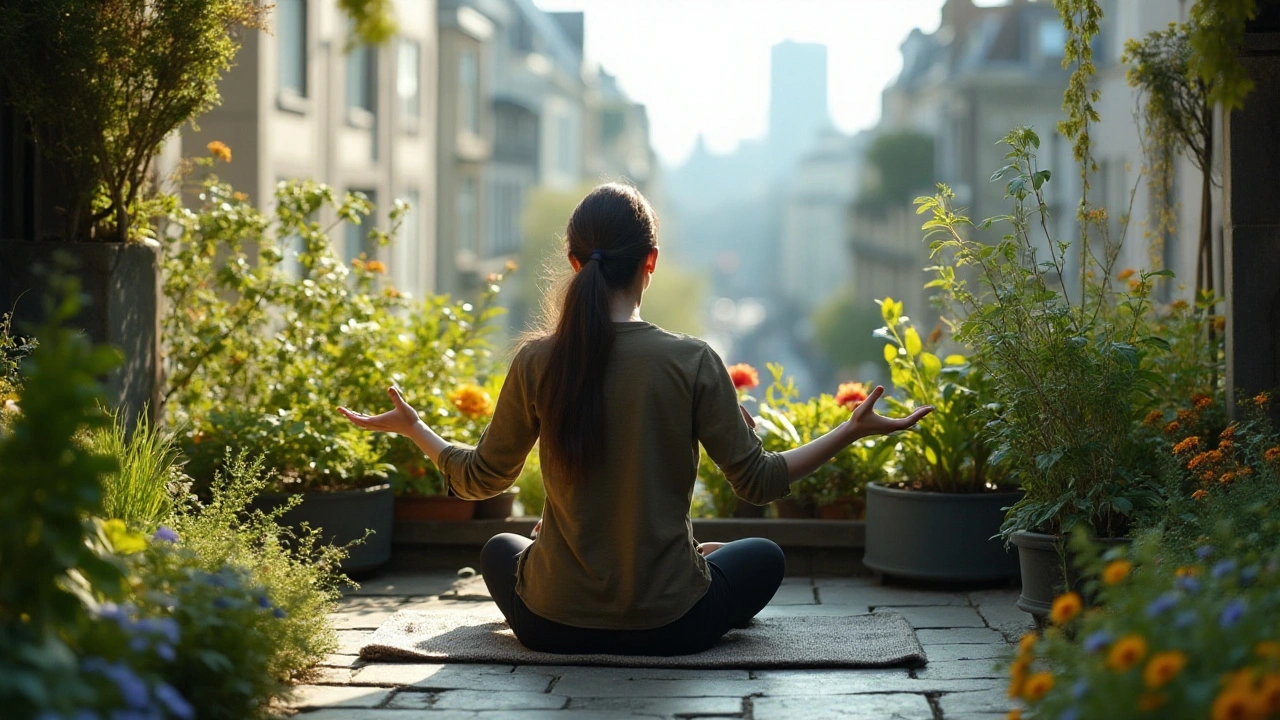
Creating Your Personalized Routine
Designing a wellness routine that fits your lifestyle can be transformative. The key is to choose relaxation techniques that resonate with you and to weave them into your daily schedule seamlessly. Here’s how to do it effectively.
The first step is to identify the activities that cause you the most stress. Are these work-related tasks? Perhaps it’s the commute or juggling multiple responsibilities at home. Once you pinpoint these stressors, you can select relaxation methods that specifically tackle these issues. Utilizing techniques such as deep breathing, progressive muscle relaxation, or even a quick meditation session can have an immediate impact.
According to Dr. Herbert Benson of Harvard Medical School, “Practicing the relaxation response daily for 10 to 20 minutes can help counteract stress and bring about deep, internal relaxation.”
Start small. Incorporating new habits doesn’t need to be overwhelming. Begin with short sessions, such as five minutes of deep breathing exercises before you start your day or a brief guided meditation app during your lunch break. These increments add up and gradually become an intrinsic part of your routine.
Set Realistic Goals
When introducing new relaxation techniques, it’s essential to set achievable targets. Aim to engage in a stress-relief activity at least once a day. As you become more comfortable, consider extending the duration or introducing additional techniques. The key is consistency. Consistent practice reinforces the relaxation response in your body, making it a natural reaction to stress over time.
Experiment with Different Methods
No single solution fits all. Feel free to try various methods to see what works best for you. Some might find yoga deeply relaxing, while others might prefer visual imagery or mindfulness exercises. The beauty of a personalized wellness routine is its adaptability to your specific needs and preferences.
- Deep Breathing: Engage in slow, deep breaths to calm your nervous system.
- Yoga: Practice poses that stretch and relax your muscles.
- Progressive Muscle Relaxation: Tense and then relax different muscle groups to relieve tension.
- Aromatherapy: Use essential oils such as lavender to create a calming environment.
- Guided Imagery: Imagine tranquil scenes to promote relaxation.
Document your progress. Track which methods work best, how you feel before and after the activity, and any stressors that come up. Keeping a journal or using a stress-tracking app can provide valuable insights into what’s most effective for you.
Lastly, be flexible. Life is unpredictable, and what works today may not work tomorrow. Adjust your routine as needed, and don’t be afraid to mix things up. The ultimate goal is to craft a routine that not only reduces stress but also enhances your overall well-being. By personalizing your approach, you’ll find that achieving relaxation becomes a natural and rewarding part of your daily life.
| Technique | Time Required |
|---|---|
| Deep Breathing | 5 minutes |
| Yoga | 20 minutes |
| Progressive Muscle Relaxation | 15 minutes |
| Aromatherapy | 5 minutes |
| Guided Imagery | 10 minutes |

